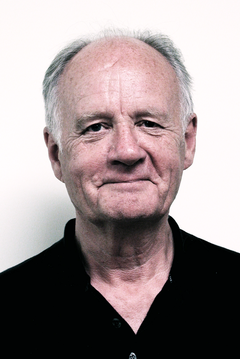1. Overview
Paul Helm is a prominent Reformed British philosopher and theologian. Born in 1940, Helm has significantly contributed to the fields of philosophy and theology through his extensive academic career and prolific writings. His work primarily explores the doctrine of God, religious belief, and the theological ideas of John Calvin, impacting discussions within Christian philosophy and historical theology.

2. Early Life and Education
Paul Helm was born in 1940 in the United Kingdom. He pursued his higher education at Worcester College, Oxford, where he earned both his Bachelor of Arts (BA) and Master of Arts (MA) degrees.
3. Academic and Professional Career
Paul Helm's career as an academic spanned several decades, during which he held various teaching and professorial positions at esteemed universities and theological colleges.
3.1. University Lecturer Positions
Helm began his teaching career at the University of Liverpool in 1964. During his tenure there, he steadily progressed through the academic ranks, serving as a Lecturer, then Senior Lecturer, and ultimately achieving the position of Reader in Philosophy. He held these roles at the University of Liverpool until 1993, contributing significantly to the philosophical discourse within the institution.
3.2. Professorships and Chair Positions
Following his time at the University of Liverpool, Helm was appointed Professor of the History and Philosophy of Religion at King's College London, where he served from 1993 to 2000. He currently holds the title of honorary professor at King's College London. Additionally, Helm took on a distinguished role at Regent College, where he was the inaugural holder of the J.I. Packer Chair of Theology. He occupied this prestigious position from 2001 to 2005, working alongside notable figures such as James Packer. From 2007 to 2010, Helm continued his academic contributions as Professor of Theology at Highland Theological College in Scotland.
4. Writings and Philosophical Contributions
Paul Helm is recognized for his voluminous body of work, which has made substantial intellectual contributions to various areas within philosophy and theology.
4.1. Major Themes and Scope
Helm's writings cover a broad spectrum of topics, encompassing philosophy of religion, philosophical theology, historical theology, and Christian apologetics. A significant portion of his scholarly output has focused on the doctrine of God, particularly the nature of the Eternal God and the concept of divine providence. He has also extensively explored aspects of religious belief, examining its nature and relationship with reason. A profound area of his research is the thought of the influential reformer John Calvin and the subsequent developments within Calvinism. Helm's work, such as The Callings: The Gospel in the World (1987), emphasizes a holistic approach to life, asserting that every aspect of human existence can be lived to the glory of God, challenging the division of life into 'spiritual' and 'secular' compartments.
4.2. Key Publications
Among Paul Helm's most significant published books are:
- Calvin and the Calvinists (Banner of Truth, 1982)
- Eternal God (Clarendon, 1988)
- The Last Things (Banner of Truth, 1989)
- The Providence of God (IVP, 1993)
- Belief Policies (Cambridge, 1994)
- Faith and Understanding (Eerdmans, 1997)
- Faith with Reason (Oxford, 2000)
- John Calvin's Ideas (Oxford, 2004)
- Calvin: A Guide for the Perplexed (T & T Clark, 2008)
- Calvin at the Centre (Oxford, 2010)
- The Callings: The Gospel in the World (Banner of Truth, 1987)
4.3. Academic Debates and Engagements
Paul Helm has actively participated in notable academic and theological discussions. One such engagement involved a debate with Christian apologist William Lane Craig on the theological doctrines of Calvinism and Molinism, contributing to ongoing discussions within Reformed theology regarding divine sovereignty and human free will.
5. Legacy and Influence
Paul Helm's work has left a lasting impact on the fields of philosophy and theology, particularly within Reformed theology. His rigorous analytical approach to complex theological concepts, combined with his deep engagement with historical figures like John Calvin, has provided valuable insights for scholars and students alike. His extensive publications continue to shape discussions on the doctrine of God, the nature of faith, and the application of Christian principles to everyday life. His ongoing engagement is also evident through his personal blog, which serves as a platform for his continued philosophical and theological reflections [https://paulhelmsdeep.blogspot.com/ Paul Helm's Deep].